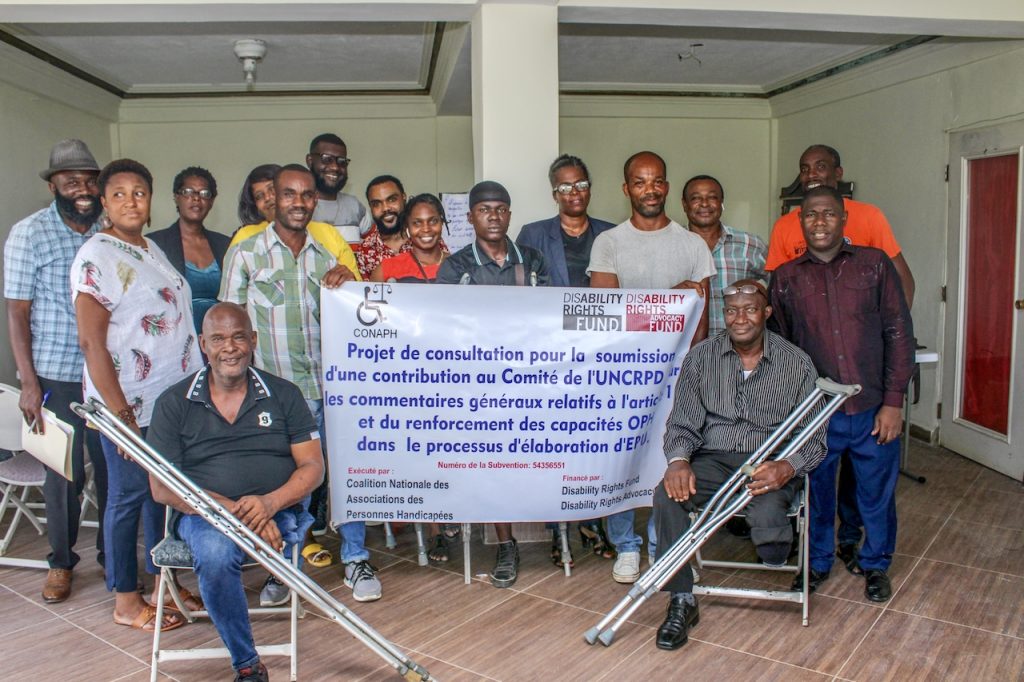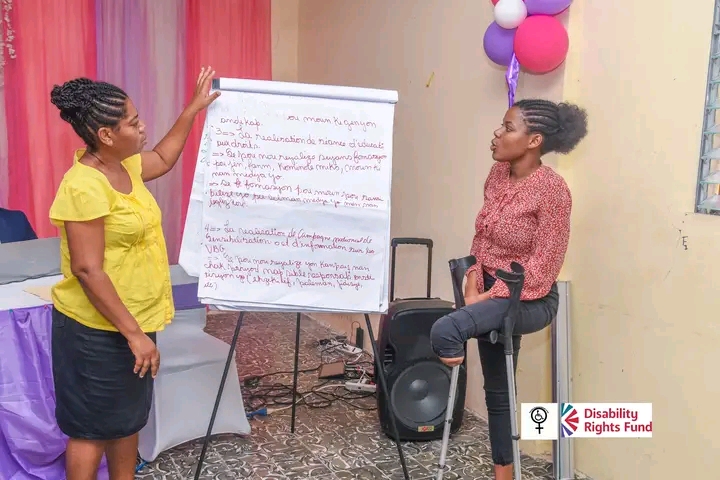Perseverance and Resistance in Haiti’s Disability Rights Movement
Blog by Jo-Ann Garnier, Senior Program Officer for Haiti
Every day in Haiti, I witness courage that humbles me.
The breakdown of democratic processes, political instability, and the rise of gang violence have deeply scarred our communities. Persons with disabilities—already navigating systemic exclusion—are among those most affected. Many have lost homes, livelihoods, and access to basic services. In this crisis, humanitarian actors are providing critical lifelines, but organizations of persons with disabilities (OPDs) are doing something more: they are ensuring our movement’s voices are not silenced.

Haiti’s disability movement is leading and advocating for change in their communities. Photo courtesy: CONAPH
Since DRF began grantmaking in Haiti in 2013, we’ve walked alongside leaders who refuse to be tokenized. Last year, we supported 11 OPDs across the country. Gender equality is now recognized an important cross-cutting priority, and we celebrated the creation of the Association for the Inclusion of Women with Disabilities in the Southeast—the first feminist OPD in Southeast Haiti.
Our partners are shaping inclusive humanitarian and disaster-risk-reduction programs. The Association pour la Promotion du Droit et l’Intégration des personnes Handicapées du Sud organized the first disability rights advocacy event in the remote community of Beaumont. Their efforts also led to two local banks installing ramps—a small but tangible victory for accessibility. In another part of the country, the Association des Sourds de Lévèque Haiti put forward recommendations to influence national disaster-risk-reduction policies to ensure that persons with disabilities are included in preparedness and recovery plans.

Increasingly, gender equality is emerging as a cross-cutting priority for OPDs. Photo courtesy Association des Femmes Handicapées du Sud.
These achievements are not isolated—they are part of a growing recognition of OPDs among government officials and humanitarian agencies. They are the result of resistance and perseverance. Before, under paternalistic aid models, persons with disabilities were seen only as beneficiaries. Now, with DRF’s flexible, localized funding, they are recognized as leaders—designing, leading, and advocating for change in their communities.
Haiti was the first nation in the Americas to successfully decolonize and establish a republic. That history lives in us. It fuels our fight for freedom, justice, and dignity.
We have the will to persevere. And we will.